Story and photos by Mike Rosso
Regular travelers on the east side of Monarch Pass have seen it. Just north of Maysville, the crumbling remains of a four-sided mansard roof rise like a sentinel above the guardrail on the south side of the highway. At 55 mph, that’s about all that motorists are likely to see, but closer inspection reveals an impressive piece of historic architecture that won’t likely survive any expansion plans on the part of the Colorado Department of Transportation (CDOT).
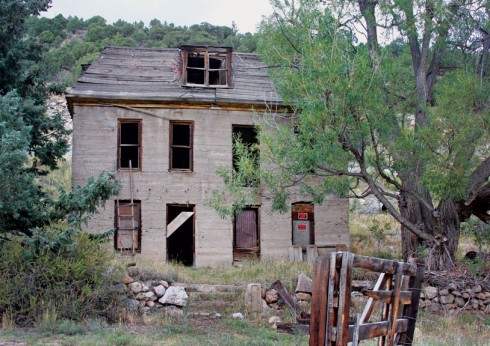 Known in the early days as The Parlor House, the three-story building was thought to have been built sometime in the late 1890s by Eli J. Wolfrom and initially served as a stagecoach stop for the town of Arbourville, along the Monarch Pass Toll Road. Soon it started serving a different type of clientele and became a brothel, the only such facility in the area. It also provided lodging for overflow guests of the Maysville Inn (the yellow house on U.S. 50 in Maysville). The construction date is approximated because there is no record of the house ever being built in Chaffee County.
Known in the early days as The Parlor House, the three-story building was thought to have been built sometime in the late 1890s by Eli J. Wolfrom and initially served as a stagecoach stop for the town of Arbourville, along the Monarch Pass Toll Road. Soon it started serving a different type of clientele and became a brothel, the only such facility in the area. It also provided lodging for overflow guests of the Maysville Inn (the yellow house on U.S. 50 in Maysville). The construction date is approximated because there is no record of the house ever being built in Chaffee County.
What makes this structure so unique is that it is constructed out of concrete using cement and glacial stone aggregate and reinforced with horizontal steel cables, a building technique very uncommon in the west during that time period. Wooden forms were used for the concrete pour and the exterior appears to have never been finished with siding or stucco – not even paint.
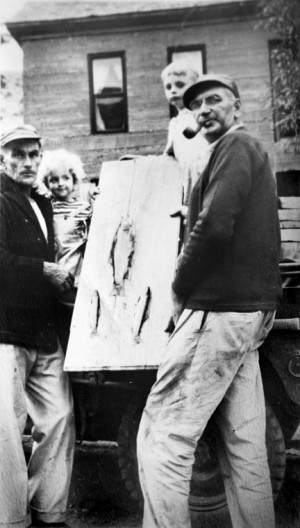
The sheer strength of the 6-inch thick concrete walls allowed for large windows to adorn all facades of the building. The floors, framing, joists and mansard roof are all constructed of wood. There are several log outbuildings adjacent to the house which are still standing.
The home is owned by Fred and Elsie Porter who run the Monarch Spur Campground, which continues to operate on their property just below the old house. The remains of the old town of Arbourville surround the property and it is said that the town cemetery was buried under the construction of U.S. 50 in 1938. Elsie’s parents Louis and Blanche Gunkel bought the property around 1940, and Elsie, who was born in 1945, spent the first three years of her life in the home. Soon the family moved to Salida to be closer to schools but her father moved back to the property and lived in the house until he died in 1957. He was the last resident of the home before it was abandoned. Elsie recalled that the bottom floor was actually used as a root cellar and that the family lived on the upper two stories.
In 2003 Elsie’s brother Gerald, fearing the house faced demolition from any future highway expansion plans on the part of CDOT (who own a 50-foot right-of-way) enlisted the help of Christina Anastasia to place the property and the building on the historic register with the Colorado Historical Society. The application was subsequently turned down.
Today the home continues to fall into disrepair but the walls remain upright, a testament to the innovation of whoever thought to “pour” a house in the mountains of Colorado in the late 1890s.
Since it sits on private property, the owners request that anyone wishing to visit contact them first. 888-814-3001.
www.monarchspurrvcampground.com

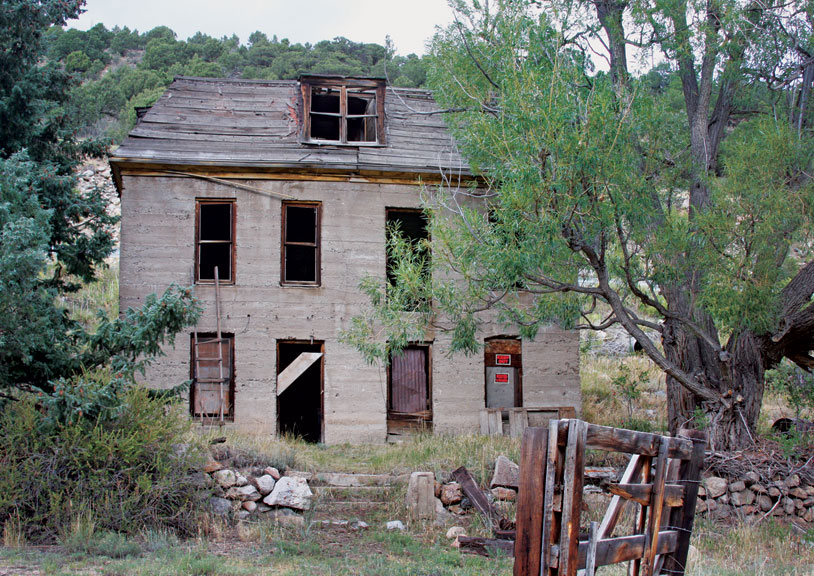
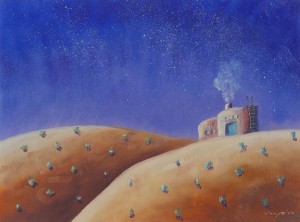
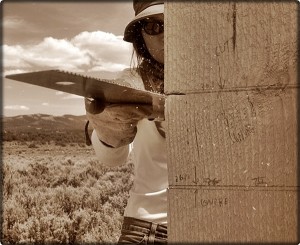

Always wondered about that place. Thanks!